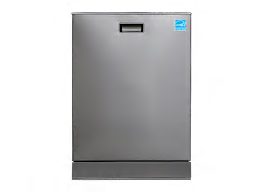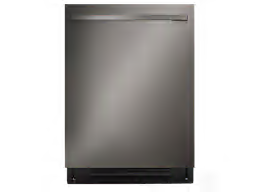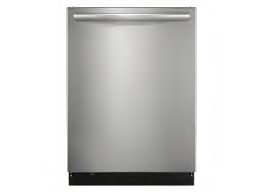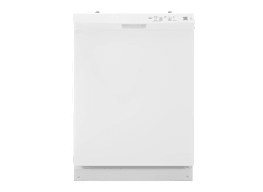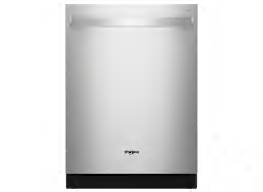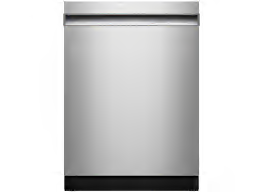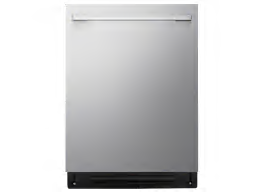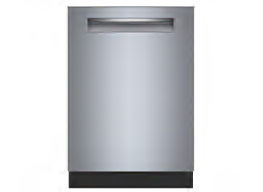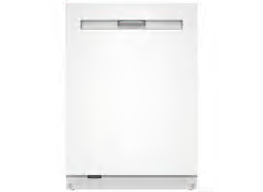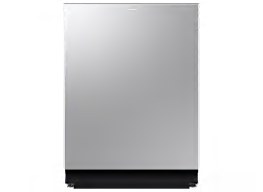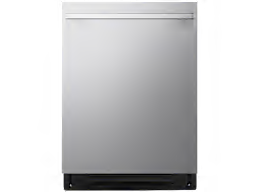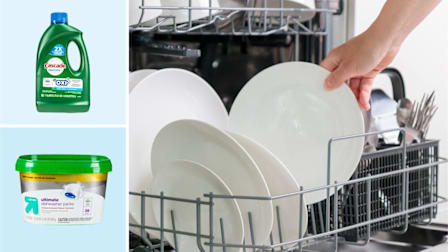Strangest Things People Have Put in Their Dishwasher
People have confessed to washing everything from toothbrushes to keyboards in a dishwasher, but is that really wise?
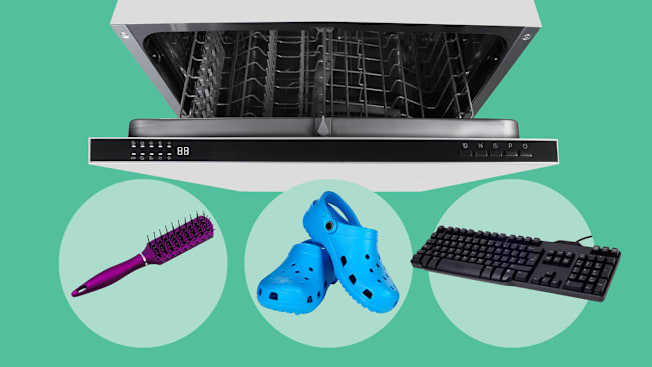
I’ve always been something of a traditionalist when it comes to putting things in a dishwasher. It’s in its name, after all—a dishwasher is a washer of dishes—so I never imagined doing anything else with the appliance beyond its primary function.
Oddest Items People Have Put in Their Dishwasher
Baseball Caps
This is, without a doubt, the non-dishware item that people have confessed to washing in their dishwasher the most. Several readers said they usually place the cap in a hat-washing cage to hold its shape before putting it in the dishwasher, and let it air-dry afterward. “It gets rid of sweat stains and keeps them looking good for a long, long time,” someone said.
Should you do it? Probably not. While many reported success with this technique, one reader did say that their darker baseball cap faded after several washings. Dishwasher manufacturers also caution against it. The high heat from the dishwasher and any harsh, bleach-based dishwasher detergents might remove the color of your cap and potentially damage the fibers, says April Taylor, an associate brand manager at Whirlpool. So unless you want to risk damage to it, wash it by hand.
Clothing and Shoes
In addition to baseball caps, people have used dishwashers to clean clothes like sweaters and jeans. Shoes are also tossed in, usually to eliminate smells, though as one reader reported, that doesn’t always work.
Should you do it? No, your dishwasher isn’t your washing machine and shouldn’t be used as such. “Dishwashers and dishwasher detergents are not designed to wash clothes and will not get them clean,” Taylor says.
If you have smelly shoes, avoid doing things like freezing them or using air fresheners because that won’t work. Your best bet is to hand-wash them with detergent and warm water, then allow them to air-dry completely. If you’re not worried about potentially damaging your shoes, try soaking them in a nonchlorine-type bleach solution that isn’t too strong and then rinsing them.
Fish
You would think that an oven would be the best place to cook a salmon steak, but some people are willing to experiment elsewhere. Some creative cooks told us they’ve poached salmon steaks wrapped tightly in tin foil in their dishwasher—not using any detergent, of course. Miraculously, they said the fish did emerge fully cooked.
Others told us they’ve used their dishwasher to thaw turkey or chicken quickly. The poultry is sealed in a plastic bag while the dishwasher runs its cycle, shortening the thawing process. “I know it’s unconventional, but it’s a lifesaver,” a reader said.
Should you do it? “The short answer is no. Heck no,” says James E. Rogers, PhD, the director of food safety research and testing at Consumer Reports. The risks are twofold: You’re potentially contaminating your dishwasher with uncooked food. And the food you’re cooking could be contaminated by whatever is in your dishwasher, such as leftover food scraps, detergent, or rinse aid.
Computer Keyboards
The dishwasher is apparently also an option for people who have gunky keyboards they’re close to replacing. Several reported that after washing their keyboard, it came out squeaky clean, and after allowing it to air-dry, it worked without a hitch.
Should you do it? Not a good idea. “The high temperature [from the dishwasher] may damage the keyboard’s plastic, and the water and detergent will almost certainly destroy the electronics,” says Nicholas De Leon, a CR tech writer.
Instead of popping your keyboard in a dishwasher, try unplugging it, turning it upside down, and giving it a good shake first. You can also use a can of compressed air to blow out any dirt or grime stuck inside the keyboard, he says.
If you have a really stubborn stain, wipe the keyboard with a microfiber cloth dipped in a 50/50 mixture of water and alcohol. You should never spray the liquid directly on the keyboard, as it may seep inside and damage the internal components.
Toothbrushes and Combs
Many readers said they’ve used a dishwasher to sanitize their toothbrushes. And for combs, some said the dishwasher helped strip away the hair oil that had accumulated between the teeth over time.
Should you do it? It’s not advisable for toothbrushes. First of all, you might end up damaging them. High temperatures and more aggressive detergents can degrade the plastic handle and deform a toothbrush’s nylon bristles, which, in turn, might compromise its effectiveness in removing plaque, says Martinna Bertolini, PhD, an assistant professor in the School of Dental Medicine at the University of Pittsburgh.
Second, a dishwasher probably isn’t getting toothbrushes as clean as people think. A 2016 study showed that using a dishwasher to disinfect a toothbrush was about as effective as rinsing it with tap water. You also risk cross-contamination from pathogens that your dishwasher may harbor, according to another 2018 study.
So how should you keep your toothbrush clean instead? According to the American Dental Association’s guidelines, rinse it thoroughly with tap water to remove toothpaste or debris, then store it upright to air-dry.
Combs and hairbrushes, on the other hand, might be fine in the dishwasher if they’re entirely plastic. They can be washed separately from your kitchen dishes as long as you clean off any remaining hair from them first, Taylor says.
Toys (for Both Kids and Pets)
Some people pop their plastic toys and dog toys in a dishwasher. “[It] works like a charm,” said a reader who uses the appliance to sanitize her child’s bath toys.
Should you do it? In general, it’s fine. If the toy is made of a thicker plastic or rubber, it should be safe to wash on the top rack of your dishwasher, Taylor says. But for safety, never put toys with electrical components into a dishwasher.
Filters
The filters in your home appliances can get gross if you never clean them. Several readers told us they prefer to use a dishwasher to clean the grease from the filters of their stove exhaust fans. Others have also tried washing the filters of their furnace and air conditioner in a dishwasher.
Should you do it? Sorry, it’s a no. You shouldn’t wash filters from exhaust fans, air purifiers, and air conditioners in a dishwasher because not all filters are reusable or washable, Taylor says. They can also be pretty delicate, so you risk damaging them, says Larry Ciufo, who oversees dishwasher testing at CR.
To be safe, always follow the manufacturer’s instructions for the best cleaning methods for each unique filter, Taylor says.
Rules for What You Can Put in the Dishwasher
For every success story a reader shared, there were also plenty of instances when the results were less than favorable. For example, a reader told us that while a run in the dishwasher got their Crocs very clean, the shoes also came out two sizes smaller after the heating cycle. Another reader’s dishwasher started leaking after they washed their sweaters inside.
If you want to be safe, wash only dishware and cooking and eating utensils in a dishwasher, says Marty Olson, a staff development engineer of home solutions quality engineering at LG. And as a general rule, it’s best to consult the user guide or care manual for your dishwasher regarding what you can put inside, says Justin Bovard, executive director of product management for dishwashers at GE. If the appliance is used improperly and it’s damaged by an item that should have been washed by hand, that could void your dishwasher’s warranty, Taylor says.
You can also check the care label of the item you’re considering putting into the dishwasher to see whether it’s marked as dishwasher-safe, Taylor says. If an item is unmarked, the best practice is to be cautious and opt for hand-washing instead.
And the next time you’re considering washing something that’s not a dish or utensil in your dishwasher, don’t forget about the risk of cross-contamination. The grime and dirt washed off of these items might cling to the inside of your appliance and end up on your dishes the next time you put them in, Ciufo says.

